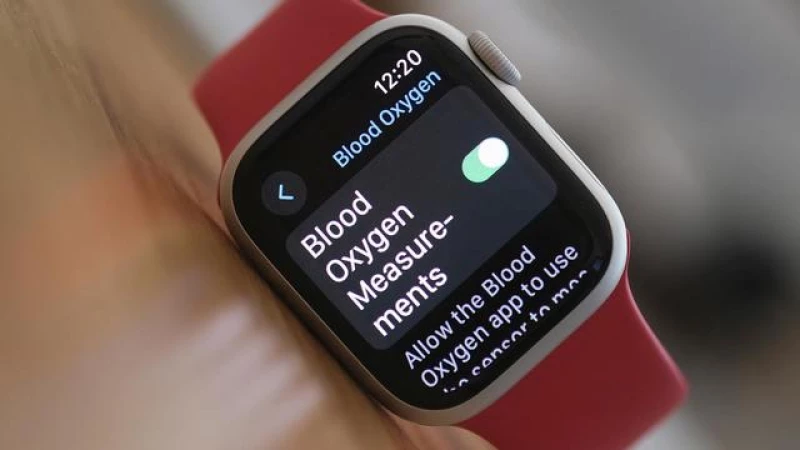CUPERTINO -- A federal appeals court has decided to revive a U.S. sales ban on Apple's premium watches while it referees a patent dispute revolving around a sensor, raising the specter that the company will pull the devices from stores for the second time in less than a month.
The ruling issued Wednesday by the U.S. Court of Appeals in Washington comes three weeks after it blocked the ban. That temporary stay enabled Apple to renew sales of the two internet-connected watch models, the Series 9 and Ultra 2, embroiled in an intellectual-property fight with medical technology company Masimo.
The U.S. International Trade Commission in late October ruled a blood-oxygen sensor in the Apple Watch models infringed on Masimo's patents, resulting in Apple briefly ceasing sales of the Series 9 and Ultra 2 in late December before getting the short-lived reprieve from the appeals court.
Apple is still trying to persuade the federal appeals court to overturn the ITC's ruling, but Wednesday's decision means the company is no longer insulated from the U.S. sales ban.
Apple Watch Ban Lifted by Federal Circuit
The Federal Circuit's decision to lift the temporary stay is a victory for the integrity of the American patent system and the safety of people relying on pulse oximetry," said Joe Kiani, founder and CEO of Masimo, in a statement Wednesday evening. "It affirms that even the largest and most powerful companies must respect the intellectual rights of American inventors and must deal with the consequences when they are caught infringing others' patents."
In a statement Wednesday evening provided to 9to5Mac, Apple said it would begin Thursday selling versions of the Series 9 and Ultra 2 "without the Blood Oxygen feature."
The appeals court decision revives the ban beginning at 2 p.m. Pacific Time Thursday.
The appeals process is expected to take at least a year, meaning Apple will be forced to stop selling its latest watch models in the U.S. through 2024 or perhaps redesign the devices in a way that complies with the ITC's ruling.
In a Monday court filing, Masimo disclosed Apple has won approval from the U.S. Customs and Border Protection on revisions that would remove the blood-oxygen sensor from the watches.
The Cupertino-based company also could negotiate a settlement with Masimo that would clear the way for it to continue selling the Apple Watch models with the blood-oxygen sensor. But in its appeal Apple has scoffed at the notion that its watches are relying on Masimo's patented technology, making a truce unlikely.
Apple Faces Sales Ban on Two Top Apple Watch Models
Apple may have to pull its two top Apple Watch models, the Series 9 and Ultra 2, from the U.S. market due to a sales ban. While the ban would only have a small impact on Apple's annual sales of $383 billion, analysts estimate that the Apple Watch generates about $18 billion in revenue each year.
The sales ban does not affect Apple's less-expensive model, the SE, which does not have a blood-oxygen sensor. However, the sensor has been a key feature in Apple's efforts to position the Apple Watch as a life-saving tool for monitoring users' health.
Apple has argued against enforcing the patent order from the International Trade Commission (ITC), stating that it would cause unnecessary harm to a product made by an American company that employs over 90,000 people in the U.S. On the other hand, Masimo, the company that filed the patent infringement case against Apple, claims that the sales ban will not significantly harm Apple as the majority of its revenue comes from the iPhone.
Masimo also accuses Apple of being a corporate bully and stealing intellectual property that is widely used in hospitals and healthcare settings, where it is estimated to treat about 200 million patients annually.







